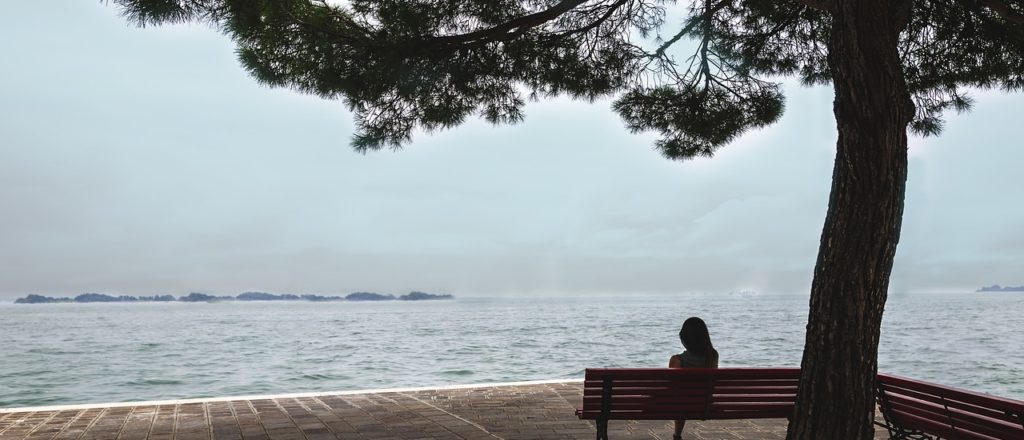When climate change makes it to the news, statistics aren’t far behind: 2020 was the hottest year ever recorded. There are now 415 ppm in the atmosphere which is almost double the amount which scientists deem healthy. Even though COVID-19 has ordered many to stay at home, 2020 was still the year with the most CO2 emissions ever recorded. And the list goes on.
Every action we are involved in today can be traced back to climate change. Even unconsciously we’re wrecking our planet.
Headlines and news stories read like horror stories about climate change and are common today. While they might come with good intentions – to inform us about the state of the world – I find them generally scary and they make me feel guilty. I feel guilty every time I drive a car, every time I complain about the cold, every time I also take out a statistic to show to my opponent.
Generally speaking, guilt sits at the table when we talk about climate change. We are the ones causing it. We are bringing on the misery ourselves.
Guilt is a faulty motivator
Have you ever met anyone who was motivated by guilt? As a parent, I know that my kids shut down when I try to make them feel guilty about something. They get extremely defensive about their inactions and they justify their way out of any argument.
And it’s the same with climate change. While it’s hard not to feel guilty when all the science points into just one direction, that feeling either paralyses us or puts us into a state of justification. ‘I have to drive my car because …’ ‘ That vacation, I need it because…’ ‘I know I should check my energy provider but…’ – the list is long and the justifications get more colourful.
I want to make one thing clear at this point: while it might seem like I want you to feel really guilty about whatever it is you are doing, I don’t. Guilt is no motivator. In some people, it can even lead to feelings of anxiety or bring up past trauma.
However, I also don’t want you to dismiss guilt because there is a simple equation: if you feel guilty, you can be sure that you care. And if you care, you’re more likely to change.
Feeling guilty means you care
Have you ever found yourself feeling really guilty towards one person or even a group of people for not doing something? It might have been a message which you left unanswered for weeks or a task you promised to do but never really got around to it. And every day that passes and you don’t do what you wanted to do, the guilt gets worse.
I once read about managers who implemented a half-day guilt-free time when their employees were able to work on tasks they felt guilty about not doing earlier. The idea is to get to work and finish whatever has remained unfinished without letting guilt stop anyone.
I love that concept because it gets us away from the guilt-trap and moves us into action. Guilt can become a real heavy-weight and hinder us from moving forward.
And that is what is happening with climate change.
Guilt can paralyse
Our collective guilt for wrecking the planet is growing and it becomes so heavy that it threatens to paralyse us collectively. It paralyses and hinders us to take collective action. We’re making excuses for not taking action. We’re seeking to blame circumstances for not being able to step up. We look for distraction so we don’t have to deal with our guilt.
And this is where we are today. Watching in disbelief at the state of the world, unable to take action and continuing business as usual.
What if we were to implement a guilt-free day every week? If we let go of our guilt and took that action that we know is needed, what could we achieve? What if, we let go of the feelings of guilt and understood our power to change the world?
At the bottom of our hearts, we care about what we do to our planet. I haven’t met a single person who could tell me with a straight face that they didn’t care where their food was grown, if polar bears went extinct or if our rivers ran dry. I don’t have to lecture anyone about the interconnectedness of our lives with our natural world when our lives themselves are at stake. We care, individually and collectively. We just all care differently.
Acting with care
So, my proposition is that we use our ability to care for the world and our guilt for not living up to our own standards and get to work. What if we stopped making excuses, stopped accepting excuses and changed the world? What if we showed our natural environment that we care?
Our guilt and our ability to care are what makes us human after all. Why not use it to move us closer to our natural being?
How can you use your love for the world today and make a difference?
If you enjoyed this article, you might be interested in my course “Develop personal respond-ability in times of climate change“. It’s now available on Udemy.

